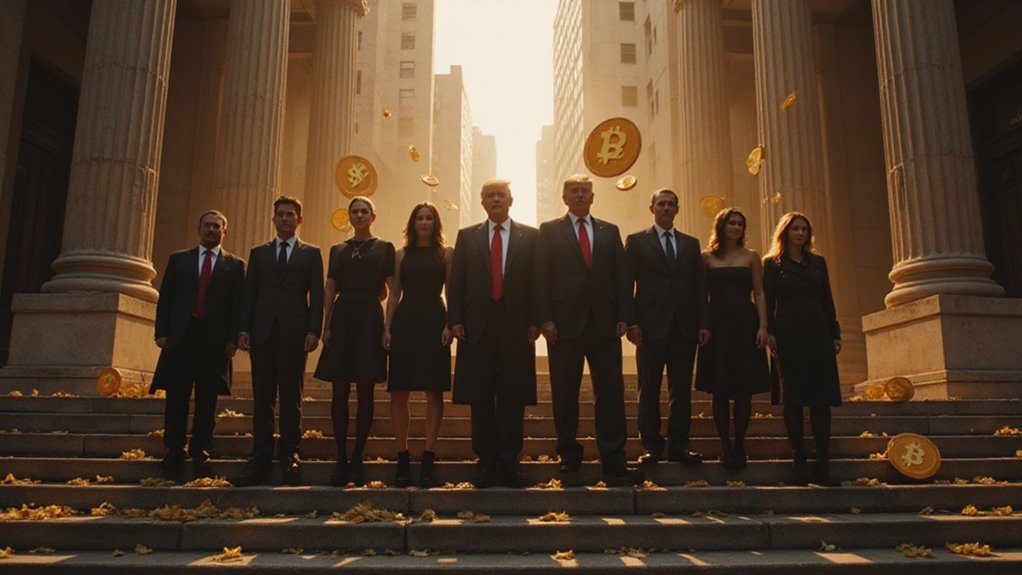How does a former president monetize the volatile intersection of politics and cryptocurrency?
According to Trump’s financial disclosure filed with the US Office of Government Ethics on June 13, 2025, the answer involves a $57.4 million windfall from World Liberty Financial, a DeFi project that launched in September 2024 with ambitious promises around dollar-pegged stablecoins.
The numbers reveal a sophisticated crypto play that would make seasoned venture capitalists envious.
Trump holds 15.75 billion governance tokens tied to World Liberty Financial—a stake that grants him considerable voting rights while generating substantial income through token sales.
The project’s fundraising success tells its own story: $550 million raised across two rounds, with early investors securing tokens at prices as low as $0.015.
What makes this particularly intriguing is the caliber of investors involved.
Justin Sun and Web3Port, both heavyweight players in the crypto ecosystem, contributed substantially to the funding rounds—$200 million in the first round, followed by $250 million in the second.
Their participation suggests institutional confidence in Trump’s crypto venture, regardless of one’s politics.
The disclosure, covering financial activities through December 2024, provides rare transparency into how political figures can leverage cryptocurrency’s explosive growth potential.
Trump’s $57.4 million income from token sales indicates he’s monetized a portion of his holdings, though the internal valuation methodology remains opaque—a common characteristic in the crypto space where market values often defy traditional financial logic.
This crypto income represents just one stream in Trump’s diversified portfolio, which includes investments in Trump Media & Technology Group (the entity behind Truth Social), Florida golf clubs, and a Vietnam development project. Trump’s Florida properties collectively generated at least $217.7 million from his golf resorts in Jupiter, Doral, and West Palm Beach, along with his Mar-a-Lago private club.
The breadth suggests a strategic approach to asset allocation that extends well beyond traditional real estate holdings.
The regulatory implications merit attention. For institutional-grade crypto operations, regulated providers like Paxos offer transparent, audited solutions that address compliance concerns through their trust company charter and licensing framework.
Filing with the Office of Government Ethics demonstrates compliance with disclosure requirements, yet raises questions about potential conflicts of interest when crypto investments intersect with political influence.
The substantial earnings highlight cryptocurrency’s capacity for generating wealth—provided one can navigate its inherent volatility and regulatory uncertainty with the kind of strategic positioning that apparently characterizes Trump’s approach to this emerging asset class.







